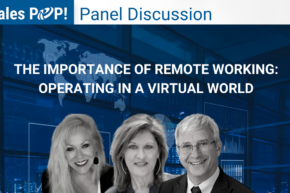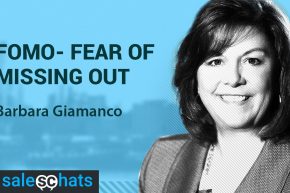Many companies avoid selling into the public sector simply because they do not know how to do it right. Thus, in this Expert Insight Interview, Rich Milliman discusses strategies and requirements for selling in the public sector. Rich Milliman is a CEO and a co-founder of Extra Duty Solutions, a company which assists Law Enforcement Agencies to administer their extra duty programs.
The interview discusses:
- Fundamentals of selling into the public sector
- The importance of incrementalism in sales
The Fundamentals
From a sales perspective, selling into the public sector is a more complicated process than selling into the corporate or private sector. Rules and regulations of the public sector are ever-changing so, you have to keep up with your updated knowledge. The public sector has different constituencies, so it requires knowing a variety of different agendas and different ways of communication. For example, you have to find ways to talk and keep interested both the police chief and the CFO because they are both business people, but they have different business needs. The business sales process can also last for years in some cases. The good things about selling services to the public sector are exceptionally high retention rates, fewer competitors due to the service specifics, and relationship sales. To become a salesperson for this sector, you need to be persistent, determined, and patient enough to handle the long processes, constant changes, and many pieces of information to collect. Also, a good salesperson must be able to look at the things in a political map sense considering that there are many parties involved with different influences and needs, sometimes even conflicted with one another.
Incremental Change
It is in an entrepreneur’s nature to spot the weakness and to immediately create the business opportunity by providing a solution to it. It does not have to be a grandiose solution immediately but rather a smaller change that can incrementally lead to a bigger business idea. The same principle stands for sales. Small sales can be done from once, but big sales require incremental changes to the processes and constant customization of services. Closing a big sale from once would be like tossing a bomb and hoping to hit the target. That is why incremental changes offer a greater probability of reaching the target while building trust and creating close relationships with your clients. Employees in different public departments and municipalities as sheriffs or mayors often change. So, the importance of building a close relationship with clients who are employees in different public sectors is that there is a greater chance that they will pass or recommend your services to their successors if they trust you.
Our Host
John is the Amazon bestselling author of Winning the Battle for Sales: Lessons on Closing Every Deal from the World’s Greatest Military Victories and Social Upheaval: How to Win at Social Selling. A globally acknowledged Sales & Marketing thought leader, speaker, and strategist, he has conducted over 1500 video interviews of thought leaders for Sales POP! online sales magazine & YouTube Channel and for audio podcast channels where Sales POP! is rated in the top 2% of most popular shows out of 3,320,580 podcasts globally, ranked by Listen Score. He is CSMO at Pipeliner CRM. In his spare time, John is an avid Martial Artist.







Comments